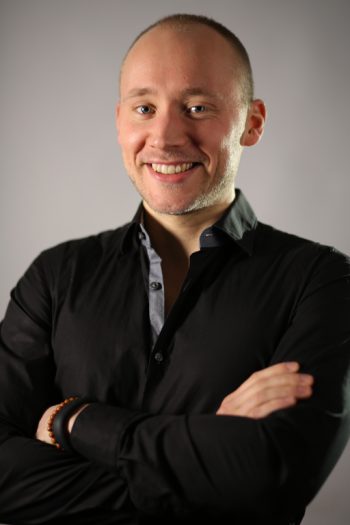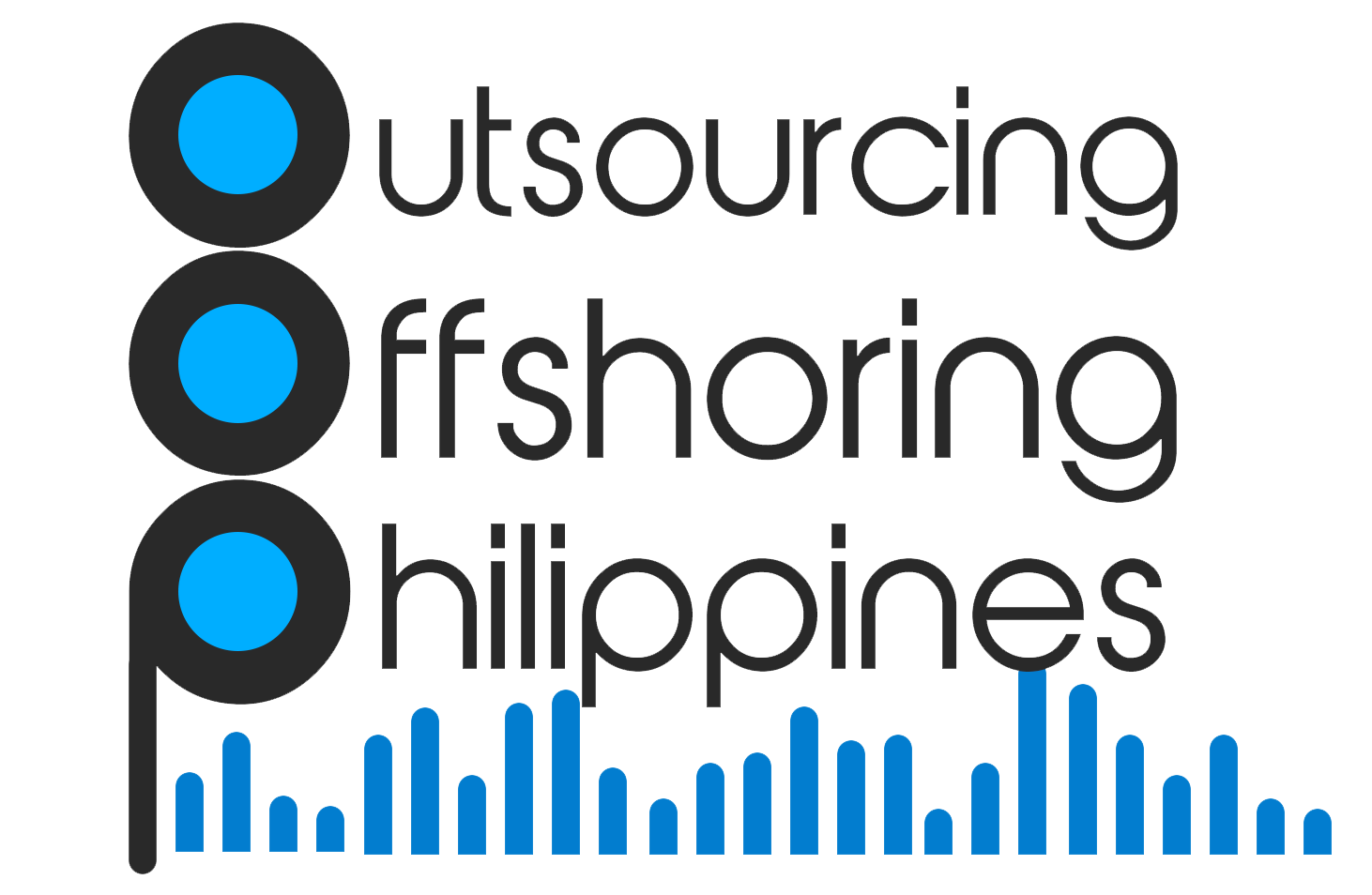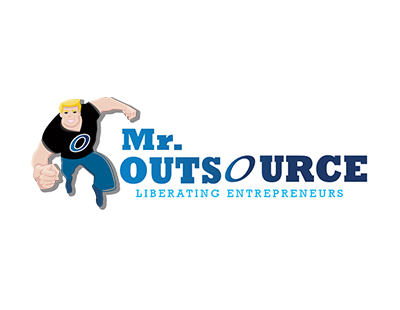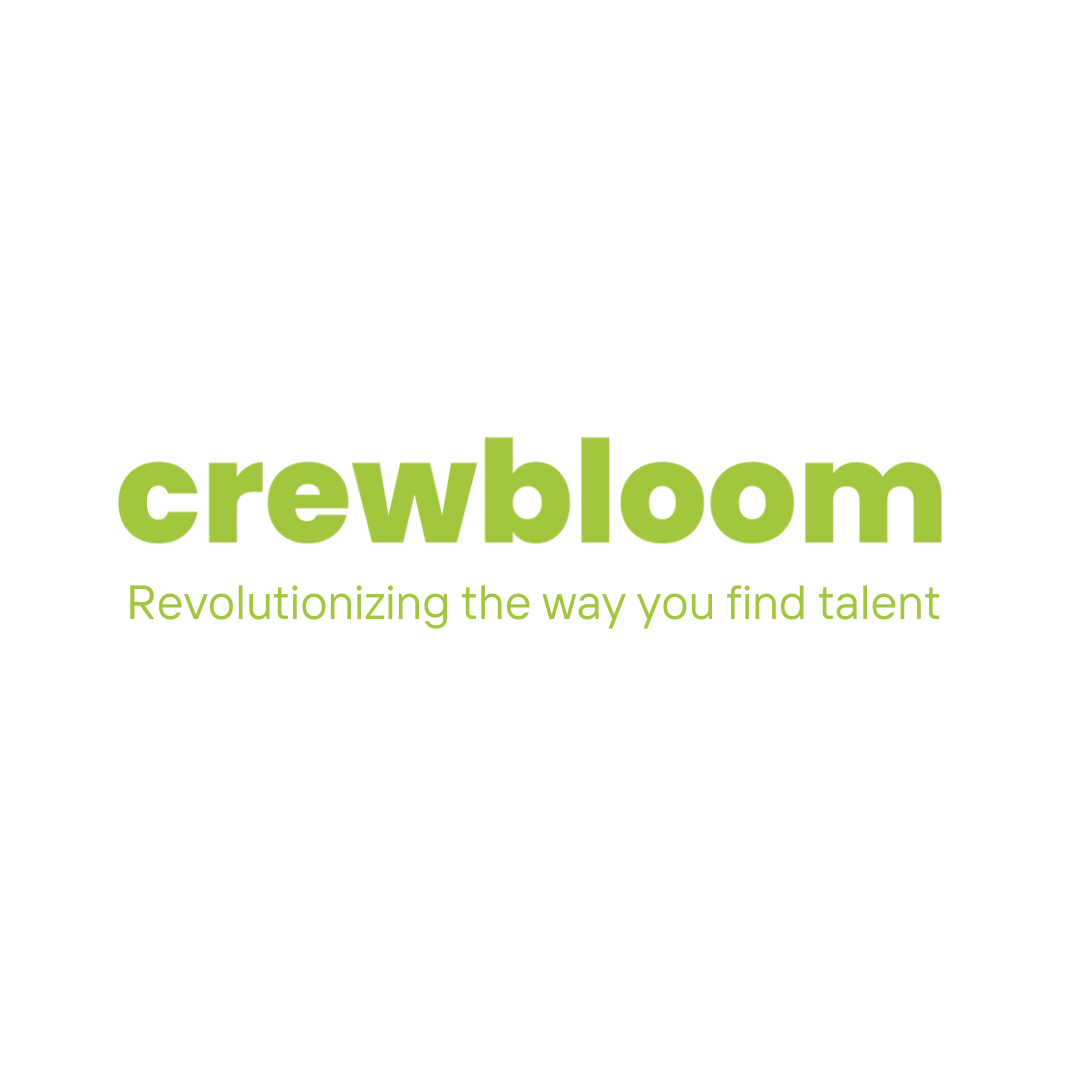 Guest: Erlend Bakke
Guest: Erlend Bakke
Presenter: Henry Acosta
Guest Bio: Erlend Bakke is a Norwegian serial entrepreneur, speaker, and #1 international bestselling author born in 1981 in London, UK. He currently owns the following three companies Mr. Outsource, 3sixty, and 3sixtyfactory. Erlend speaks on the topics of entrepreneurship with focus on how to automate and outsource your business to avoid the trap of becoming a business prisoner. He spends most of his time between London, Oslo, and Davao City in the Philippines, but is available to speak at venues all over the world depending on availability.
Erlend trains entrepreneurs in how to start, run, and own freedom businesses through his seminar `The Freedom Bootcamp` (www.thefreedombootcamp.com), the membership website www.worklessearnmore.tv, and his weekly business podcast `Hardcore MBA Podcast` (www.hardcoremba.com). In 2013 he first published the book Never Work Again that went on to become an #1 International Bestseller. The book is focused on applying freedom to your life as well as your business by cutting the crap and getting real about your true needs and desires.
Segment overview: Erlend Bakke launched Mr. Outsource four years ago as a company to help to liberate entrepreneurs, basically to help entrepreneurs in the UK, Australia and the US delegate their tasks to a reliable company in the Philippines. Mr. Erlend wants to meet the problems of many businessmen and entrepreneurs by automating and help systemize office operation and if needed, to help companies outsource for highly qualified virtual assistants. Mr. Outsource takes care of all the requirements of running a business virtually from administration, basic accounting, hiring of qualified personnel, management of schedules, setting up of appointments, travel bookings, research work, regular updating of company websites, answering and receiving of company communiqués via the internet, phones, and mail correspondence, to almost all phases of operations. Through his company Mr. Outsource, Mr. Bakke pushes his advocacy of liberating entrepreneurs from the hassles and bustles of running their business and find greater freedom and more time for themselves to pursue other endeavours.
Address: Capricorn Street, Dona Luisa Phase 1, Talomo, Davao City, 8000 Davao del Sur
Contact Number: INTL: +44 203 239 5020
Website: http://mroutsource.com/
To know more about Mr Outsource, listen to the podcast below.
The interview will start at 1:50 mark of the podcast episode.
Henry Acosta: Hello and welcome to the Outsourcing Philippines Podcast. I’m the host Henry Acosta and today we have Erlend Bakke, he’s a Norwegian entrepreneur, speaker and #1 international best-selling author. He was born in 1981 from London, United Kingdom, he currently owns three companies Mr. Outsourcing, 3sixty and 3sixtyfactory. He speaks on the topics of entrepreneurship with focus on how to automate and outsource your business to avoid the trap of becoming a business prisoner. He spends most of his time between London, Oslo and Davao City in the Philippines. He’s also available to speak at venues all over the world depending on his availability. Today he’s here with us to talk about Mr. Outsource and how his experience has been with outsourcing here in the Philippines. Hi Erlend and welcome to the program.
Erlend Bakke: Thank you.
Henry: Alright so for our first question today, can you give us a quick introduction about who you are and what you do for Mr. Outsource?
Erlend: Yes. So Mr. Outsource was basically started because I was successful in another type of business. So basically when I started my first business in Oslo, I had to do a lot of editing, so basically we’re doing something called 360 photography of products and I was sitting day and night editing all these images and I developed RSI in my right arm so then I was suddenly using my left arm and I was learning all the shortcuts and everything but it didn’t just wasn’t a sustainable life, you cannot work 16 hours a day. So I started to ask myself how can I, what can I do which is I think is the really important question in any given situation whether you’re in prison or if you’ve lost a family member or if you lost your job, you can always ask yourself ‘What can I do?’ So I asked myself ‘What can I do?’ well I could probably send the files somewhere else and get them edited at a lower cost than doing it in Norway so I put an ad out on a website in the Philippines, Sulit.ph I don’t think that’s popular as it used to be, maybe it is. But yeah I got about 30 applicants and then I sent them a test, so basically I recorded my screen so that’s one of the really important things that you can ask your clients to do or if you are a client to get you to do to outsource so there’s different software you can use one is ScreenFlow, one is Camtasia and you just record your screen and then you upload it to YouTube as an unlisted video then you send the instructions that way and that’s something I’ve done again and again and again. So we have a big library of tutorials on how to do the different processes in my business but I sent them these tutorials and some images to edit and within the test I had actually made a mistake which I haven’t told them about but they have to sort of find the mistake to sort of move on to the next round and five people did that so I hired them for a week and then I hired the best person and that kind of became my business partner in 3sixtyfactory and we’re still working together. Today I had a meeting with him this morning and it’s been working really well. So I started Mr. Outsource because the image editing worked for me, like I like working with Filipinos, I like how you speak English and the culture and how you’re happy and you sing karaoke. I mean that doesn’t go for all Filipinos, that all Filipinos are happy but like a lot of the time I kind of feel like I’ve been blessed to be surrounded by great people in the Philippines and we’re constantly looking for talent as well for Mr. Outsource. So what Mr. Outsource does is that this is a very sort of long winded explanation of what Mr. Outsource does, but I think it’s important to sort of give better than context. So because I was successful with image editing I said ‘Okay so how can I help other entrepreneurs?’ because what happened even though I was doing outsourcing was that I really sort of worked myself into the ground because even though I started outsourcing I was still working 16 hours a day, 7 days a week and I wasn’t like giving myself a break but at some point I got so tired from working that I just had to take a couple of months off to heal my body and sort of mind. And my business kept on working because I deployed outsourcing so basically my team in the Philippines and my Norwegian license holder, they kept things running while I took some time off and because that worked I was like ‘Okay so this is a serious problem for entrepreneurs getting burned out’ so what can we do to help other entrepreneurs? So I launched Mr. Outsource as a company to help to liberate entrepreneurs basically to help entrepreneurs in sort of UK, Australia and the US delegate their tasks to a reliable company in the Philippines. So we’ve tried lots of different business models and a lot of them haven’t worked so we still have some entrepreneurs as clients but we’re now a BPO so in our business process outsourcing company where we focus on outbound sales and search processing.
Henry: I see. That’s a very good history, I admire your work. So what do you think make the Philippines different compared to other countries that service outsourcing and what are the main benefits here or main benefits of outsourcing here?
Erlend: So the main differentiator for me has been that you’re actually ahead of time so in the nature of image editings let’s say a client sends his files 8 o’clock in the evening from Norway then we start the office like early in the morning which means we can work on the images while the photographer is sleeping so the photographer can now get the imagery the next morning. So that’s what the timezone has been one benefit, obviously that depends on your business. I know a lot of like our BPO company we have people working US time so basically during the night in the Philippines. But yeah the main benefits I found the Filipinos I’ve worked with have been a bit honest, loyal, grateful for work and wanting to learn like willing to learn. They appreciate because one of the things that I’ve done is that I’ve used sort of information marketing products so basically like ebooks or sort of online tutorials that I’ve paid five hundred dollars for, I actually have given to my staff so I constantly interested in like growing my staff and helping contribute to their life so that’s been a big focus for me. So compared to other countries I haven’t outsourced to India ever, I mean that’s another English speaking country. I’ve done outsourcing in other places like Eastern Europe, I’ve done the US, Australia. There is definitely a price difference, right, so there this cheaper but sometimes it’s not about the price sometimes it’s about quality and I think that’s something that’s really important for people like workers in the Philippines to understand. It’s not always price, right, sometimes people are willing to pay more to get higher quality because it’s for them they already have a really let’s say you’re a consultant and you’re charging $500 an hour then you’re probably more willing to pay somebody higher and get the work done well rather than pay less and not get the work done so really you need to understand your clients and it depends on what they want. So it’s worked well for me, the challenge that I’ve had and still have oftentimes and this is actually something basically Mr. Outsource…we do training for Filipinos that want to become virtual assistants and we constantly doing trainings a bit like…of people where we train people to understand how westerners think. So one of the challenges with Filipino VAs is that they’re too shy, right, and they get scared of saying what they really mean, scared of speaking their minds, scared of sort of replying to a boss that is angry so we do a lot of training with Filipinos about to overcome shyness because it is actually something that limits success in the western business world. That’s one thing I would say as a downside is that you’re not fast enough in responding to emails in regards to criticism and like just disappearing because you’re scared – it’s not the way to do it. I think it’s really important that you understand that you are serving the client and you need to be as the client wants you to be and if the client wants rapid feedback and somebody that can handle criticism and keeps the eye on the ball then you need to adapt to that and you need to sort of just get over the shyness.
Henry: So that’s one of the cultural barriers that you’ve faced during your transition period here in the Philippines or when you were starting your work here?
Erlend: Yeah, I would say I’m a lot more tolerant than most entrepreneurs, okay. I used to be a tennis coach so I used to be a teacher so I’m more patient with people than most people in terms of training. But what will happen with a lot of entrepreneurs that start outsourcing, they just cannot be bothered and that’s also why sort of helping entrepreneurs outsource hasn’t really worked. That’s the honest truth is like because people just like, well there’s more to the story so the school system teaches us to do everything ourselves okay? It teaches us to not delegate so naturally when people start a business they do everything themselves but we don’t spend that time learning how to outsource right, but if we’ve spent 15 years at school learning how to outsource efficiently and manage our time and do all these marketing that entrepreneurs needed to learn then more people would be good at outsourcing. And my whole idea was to teach entrepreneurs these skills and then sort of help them find staff but the problem is like entrepreneurs they just don’t have patience to train people and then when the Filipinos are kind of shy when the entrepreneur gets stressed and angry and then the relationship just doesn’t work out but I think my secret was that I was much more patient with the people that I developed the relationship with and my core team I’ve worked with now for like 8 years, 7 years.
Henry: So with regards to your clients, can you give us any experience from them or testimonials that’s been memorable or stands out to you?
Erlend: Yeah, I mean we get testimonials a couple times a month and we have testimonials page on the mroutsource.com fortestimonials and people are happy for the people that are willing to spend their time and build their team and…people they’ve got good results. I wish that the amount of people that have this success was higher. Despite all the training that we try to provide, people are still failing at outsourcing at this sort of beginning stages. A lot of people anyway not all but there’s I mean outsourcing’s very growing trend but there’s a much bigger market for companies that want to have 10-20 people than there is for like serving entrepreneurs than one to one person.
Henry: Alright. What do you think makes Mr. Outsource different from other outsourcing agencies not just here in the Philippines but all over the world?
Erlend: Yeah. So what we put a lot of focus on is community and training so where our office are we actually have a coworking space okay. So that coworking space is so the place you can go in and you can pay to spend the day working there and then that environment there’ll be lots of other coworkers that you can ask advice, get to know, etc. so that’s one aspect. We’re very much community based and as part of that community we do a weekly events so we’ve done lots and lots of events at the space, constantly bringing people together that want to be virtual assistants or web designers, programmers whatever and building sort of our office to be a hub for people that want to work in that kind of way so that’s definitely a big differentiator. And obviously when you have lots of presentations these are courses right so people are constantly learning and learning and learning so we focus on sort of serving our community and educating them to become really better of what they do and that’s something that of course we talk clients about, other things we are getting much more focused on outbound sales and processing data. That seems to be working for us besides that, yeah which is because we’re in the human business we sell humans – kind of – we focus in honing really great people.
Henry: Awesome. Can you give us the main mission and vision of your company?
Erlend: Yeah. So our mission is to first and foremost sort of educate and grow the people that we have a relationship with so basically on our end make sure that we have attracted really great people and that the culture in the business is awesome that is really important and then it’s obviously to serve our clients in the best way possible. That’s my goal.
Henry: Alright. Can you give us a little bit of insight on the process of recruiting clients for you guys?
Erlend: How we actually get clients?
Henry: Yeah.
Erlend: Okay. So one strategy that we use was that I published two books about outsourcing and we sell a couple of books everyday. People read about outsourcing then they contact us so that’s been one way. Another way is just giving presentations so giving presentations on outsourcing, helping companies understand how they can outsource and then their obvious answer to who can help them outsource is us right. If you help somebody understand how to outsource then you offer them outsourcing, the likelihood of them choosing you is high. And then we do a podcast, we also have a podcast, ‘Hardcore MBA’ where we have the topic of outsourcing sometimes, not all the time. But the podcast is sponsored by Mr. Outsource so that’s another outreach but we also do a lot of referrals so basically like we have clients today so the way we like to build companies is that you get some clients, you serve them well, you take good care of them, you make sure that like the work that you do for them grows their business and then you ask them for referrals. You say like ‘Do you know anyone that needs a VA?’ or ‘Do you know anyone that needs a call center?’ right. And then they will help you out because you’re helping them, like they will give you a referral. And it’s a much stronger way to build the client base because you don’t have to sell yourself and somebody’s just saying these are great to somebody else that needs it and that’s how we get most of our business.
Henry: Alright. So let’s say I want to work for Mr. Outsource, what is it that you look for in an employee?
Erlend: So we do a monthly bootcamp, they’re called different things but yeah you have to pay …pesos to attend and then we offer you a course there as well to like go through our training and then if we like you, then we’ll get you some work.
Henry: Alright, that is pretty simple. Can you say that the businesses of your clients have grown considerably since they started working with Mr. Outsource?
Erlend: I think so. Not for all, I mean some people that quit they quit but we have a lot of the same customers and they are using more and more of our services so that’s a reflection of us actually adding value to their business.
Henry: And what are the common misconceptions that you usually tackle about outsourcing here in the Philippines?
Erlend: There’s a big misconception that there’s like this superstar virtual assistant like you can have one person and there’s like send them everything. That isn’t true, you need a general virtual assistant, you need a project manager and then you need to build a team around the project manager. So yes you can delegate to one person but that person needs to have access to other people so you’re not gonna find like a programmer, web designer, graphic designer, salesperson, social media expert, powerpoint creator etc. You’re gonna find that’s like a team of six right? So that’s actually one of the business models that we tried with Mr. Outsource, was to give them like a dream team so basically like if you want to make money online then you need these types of people well here’s a contract for getting those types of people. And yeah, again it didn’t work for the people that we were selling it to but I do know that there is another company called consus.com.au doing that very successfully so basically they offer just like lots of different types of people but they only work for Consus on a freelance basis so but they fell to different market groups, different target market so that’s why that works. But misconceptions, yeah, I think there’s a misconception that all Filipinos are great. I have hired people and it has not worked out, it typically be in the sort of disappearing act that like works for like a month and then the person becomes more sloppy, more sloppy, more sloppy and then sort of disappears. But the trick there is like notice it really early on and there’s a couple of more things as well to notice when you’re outsourcing. One is like ‘Oh my computer broke down’ is a very common excuse, ‘I was ill’ that’s another one, “There’s a storm” was another excuse and something happened to a family member – these are like common excuses that when people don’t deliver. Instead of just saying like “You gave me too much work that’s why I can’t deliver” they sometimes people come up with these excuses. And there’s a saying which I really like which is like you either have results or you have all the reasons why you didn’t do it so either you have the results or you have excuses. So those are really important to pay attention to and that’s something I teach clients as well, if they’ll say that there is a storm or they were ill or this or that it’s like yeah maybe once if it happens in the first month. The thing is like if you are committed to serving your client and making it happen no matter what which is the case like with my business partners in the Philippines, they will make things happen no matter what. If there’s a storm they’ll figure out how to get electricity some other way right, that’s why they are superstars. That’s why my business partners are really awesome because they have that attitude but I’ve met a lot of other Filipinos that don’t have that attitude right, so I think that’s a misconception as well.
Henry: Alright. Can you share with us any memorable experiences that you’ve had here in the Philippines when you came here?
Erlend: Yeah. I mean trying Durian and like the first time I came down, I’ve never been to the Philippines and I came in to the office and everyone there it was there with like a sign and everyone clapped and smiled and sang for me and it was just an amazing thing. And then I just had a great time when we go, when we have dinners together, when we do karaoke, when we do our team building exercises. Those are things that I really find amazing and I find like the people that I work with in the Philippines are amazing people, they are great people and I’m really grateful for the collaboration that we’re doing.
Henry: Alright. For our last question, how can anyone who’s interested in Mr. Outsource get in touch with you either potential clients or maybe even employees?
Erlend: Yes so the thing to do is to go to mroutsource.com and just go to Contact and then send us an email that’s the best way. And if you’re in Davao City you should drop by our space Dream Work, you can go to dreamwork.ph and check it out and go come on our free events.
Henry: Awesome. That’s all our questions for today Erlend and thank you for being on the show. We appreciate your time.
Erlend: Thank you man.
Henry: That was Erlend Bakke, an entrepreneur, speaker and #1 international bestselling author. He is the owner of three companies Mr. Outsource, 3sixty and 3sixtyfactory. We just finished talking about Mr. Outsource, transcripts and archive are available at offshoring.com.ph and you can listen to this podcast on iTunes. Thanks for listening.



